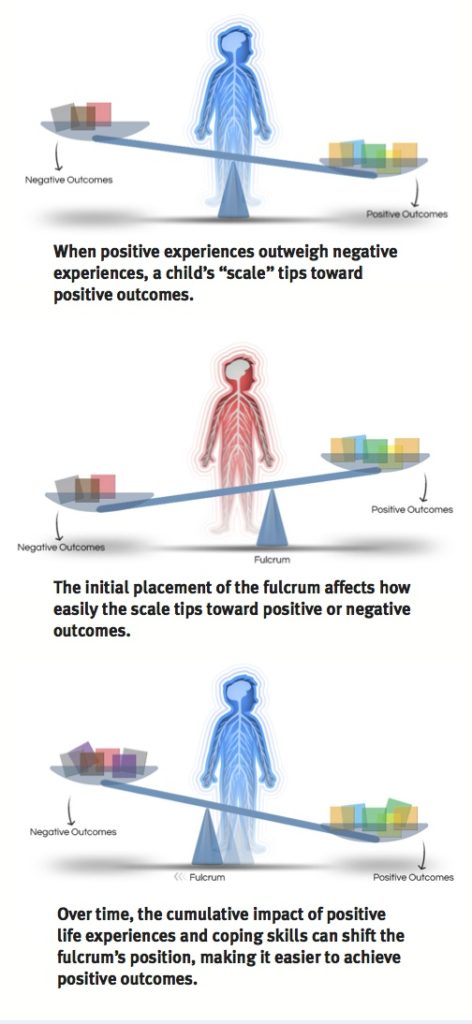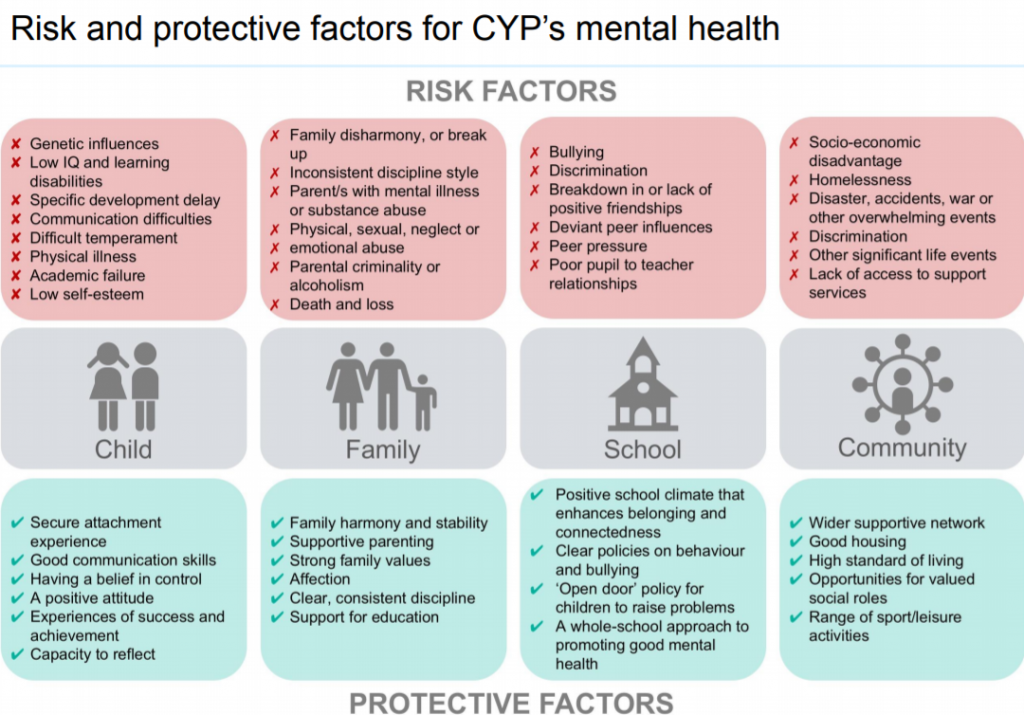The Role of Protective Factors
There can be many risk factors that challenge and impact a child’s emotional development and wellbeing. These can lead to negative outcomes for the child and they need protective factors to help balance the risks they face.
It’s as if we are working with a balance scale. In the metaphor we have risk factors on one side and protective factors on the other. The scale can tip either way depending on the child’s experiences. This leads to either positive or negative outcomes for the child. Working to promote a child’s resilience through increasing the protective factors can counter-balance some of those risk factors impacting on the child, resulting in better outcomes.

The table below outlines some of the many risk and protective factors a child or young person may face. The image is taken from ‘The Mental Health of Children & Young People in England’ from Public Health England which can be found here.


Apply Your Thinking:
Read the case study below and identify the risk and protective factors for this child. How might you work to promote resilience in the face of the risk you identify?
Betsy is 2 years old. Her parents separated not long after she was born but work hard to try and co-parent together. She spends time with both parents in their separate homes. Dad has struggled with his mental health and has had periods of time where he has been dependant on alcohol. He can be reluctant to access support. Betsy attends a Childminder several days a week where she is beginning to build positive friendships. She isn’t meeting expected milestones and is struggling with aspects of communication such as her speech. Both of Betsy’s parents live in rural communities with limited access to local support services.
Building Resilience Through Play
OPTIONAL: The following Brain Architects Podcast: Building Resilience Through Play is a great listen to understand ways of supporting healthy and resilient child development through play. Far from frivolous, play contributes to sturdy brain architecture, the foundations of lifelong health, and the building blocks of resilience, yet its importance is often overlooked. In this podcast, Dr. Jack Shonkoff explains the role of play in supporting resilience and five experts share their ideas and personal stories about applying the science of play in homes, communities, and crisis environments around the world.






